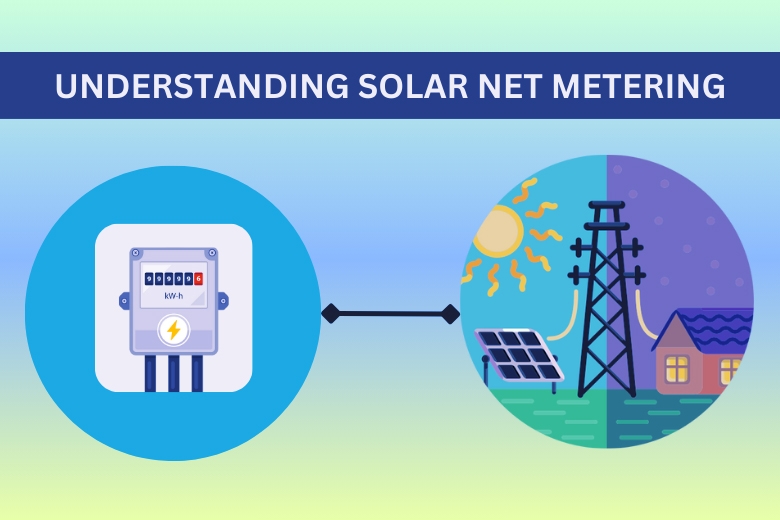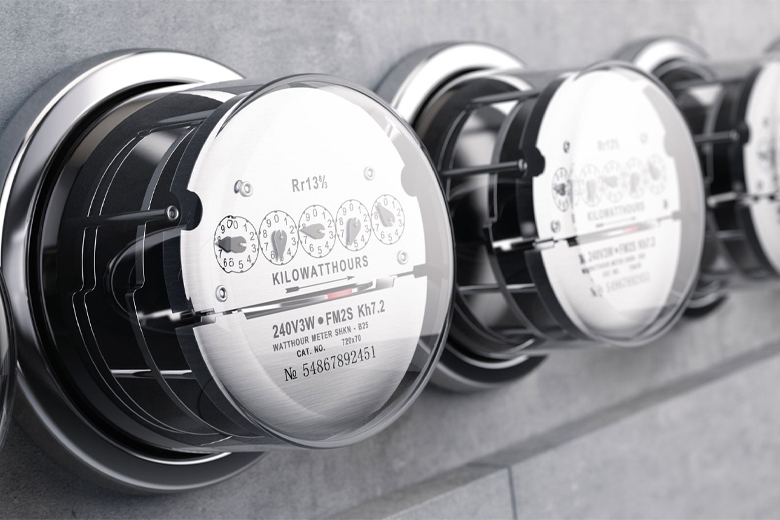Rooftop solar is becoming a popular way for homes and businesses to get clean, renewable energy. Net metering, which is a key part of rooftop solar, is opening up a new way for people to be energy self-sufficient. PowerHome will show you all about net metering and how it can help solar customers save money.
What is net metering?
Net metering is a way of feeding electricity generated by a rooftop solar power system into the grid to offset the electricity consumption of a home or business. When a rooftop solar power system generates more electricity than a home or business consumes, the excess electricity is credited to the grid and reflected in the appropriate electricity bill. Conversely, when a home or business uses more electricity than it generates, the difference will be purchased from the grid. This means that homes and businesses can become self-sufficient in electricity, which will lower their electricity bills and reduce their dependence on traditional energy sources.
One of the many benefits for homeowners installing a solar panel system on their home is net metering. This provides solar customers with a retail price credit that is used to offset the excess energy generated by the solar system and sent back to the grid. Basically, net metering is like solar cells in that you can store excess energy in a grid "bank" and use it when the solar system isn't producing enough or at night.
A number of electric utilities don't offer net metering because they feel solar customers aren't contributing enough to the costs of maintaining the grid. Some even try to minimize the value of solar energy on this basis. However, this way of thinking is short-sighted.
How net metering produces net benefits?
According to a report authored by the Brookings Institution, a Washington, D.C.-based nonprofit public policy organization whose mission is to conduct in-depth research that leads to new ideas for solving societal problems at the local, national, and global levels, there is a growing body of national literature that largely supports net metering. Excerpt from the report:
Increasingly [the literature] concludes — whether conducted by PUCs (public utilities commissions), national labs, or academics — that the economic benefits of net metering actually outweigh the costs and impose no significant cost increase for non-solar customers. Far from a net cost, net metering is in most cases a net benefit — for the utility and for non-solar rate-payers.
The conclusions of some of the reports cited by the Brookings Institution are well worth reading. One of them comes from the Minnesota Public Utilities Commission. The Brookings report states:
In 2014 Minnesota’s Public Utility Commission approved a first-ever statewide “value of solar” methodology which affirmed that distributed solar generation is worth more than its retail price and concluded that net metering undervalues rooftop solar. The “value of solar” methodology is designed to capture the societal value of PV-generated electricity. The PUC found that the value of solar was at 14.5 cents per kilowatt hour (kWh) — which was 3 to 3.5 cents more per kilowatt than Xcel’s retail rates—when other metrics such as the social cost of carbon, the avoided construction of new power stations, and the displacement of more expensive power sources were factored in.
What does net metering offer customers?
-
Lower electricity bills: When PV panels produce more electricity than a home or business needs, the excess electricity can be sent back to the grid and earn credits on your electric bill. These credits can be used to offset the cost of purchasing electricity from the grid at night or on cloudy days, thus lowering the overall cost of electricity.
-
Financial return: With net metering, every kilowatt-hour (kWh) of electricity generated by solar panels is used to reduce utility bills, which means a favorable financial return. This includes a return on investment in solar panels, simple billing arrangements, environmental benefits, and reductions in infrastructure and fossil fuel power plant costs.
-
Creates jobs and encourages private investment: Net metering increases the demand for solar energy, which in turn creates jobs for installers, electricians and manufacturers in the solar supply chain. According to SEIA, the solar industry currently employs more than 230,000 U.S. workers, thanks in large part to strong state net metering policies.
-
Protects the grid: Net metering policies help the grid better manage its peak electrical loads. By encouraging the generation of power near the point of consumption, net metering reduces stress on the distribution system and prevents losses in long-distance power transmission and distribution.
Overall, net metering not only reduces the cost of electricity for homes and businesses, it also promotes the solar industry, creates jobs, and contributes to the stable operation of the grid.
By installing and purchasing a solar system, you can take advantage of all of the above benefits and start powering your home with clean energy the moment the system is turned on. At PowerHome, we see the value in providing clean energy to our customers. We're proud and excited to be a part of this movement, one solar panel at a time, one home at a time. Not only are we saving our customers money on their electric bills, we are doing a great job for the environment.
(1).png)

(1).png)